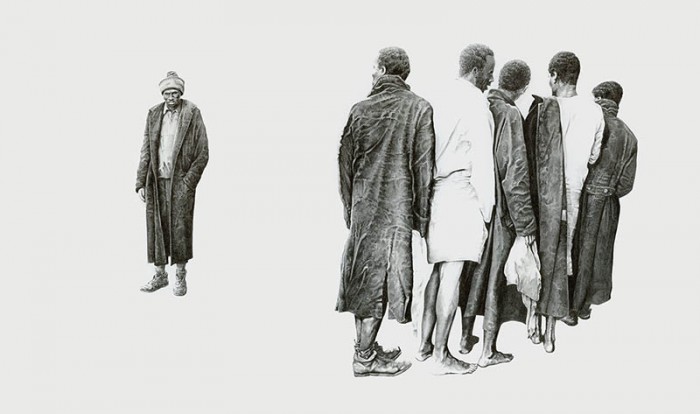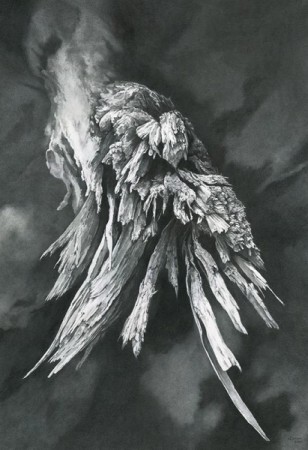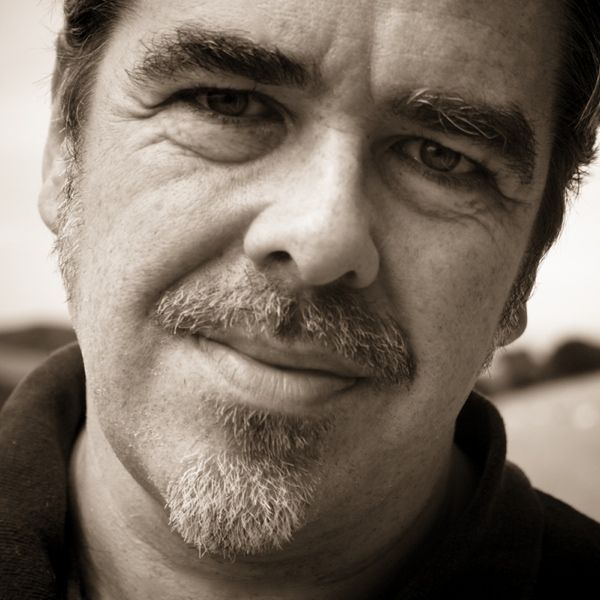**Please tell us something about you: Who are you, what is your profession and what are you working on?
**
For the day-job, I have been a web developer since the late 1990s, sometimes freelance, other times employed. I am based in the North Cornwall coast in the UK, while my current main work focus is based in Los Angeles. This makes for some interesting—and many long—evenings.
The rest of my time is split between two main projects. Firstly, what I aim to become my main activity next year: art. I began working life as an illustrator in publishing and retail, but found a more technical side as computers took over from imagesetters and airbrushes (yes, I am that old). I am long overdue getting back to my core creative pursuits as something more than a pastime. Earlier this year I was accepted as an associate member of the Society for Graphic Fine arts, which is a valuable validation of my drawing skills.
Secondly, writing. From short stories in horror and speculative fiction, to novels and in particular a thriller series set in 1902 London. Far too many in-progress or planned, all too few ready for publishing. In addition I write intermittently to several blogs, both personal and business-focused.
When time and weather allows, I am either walking my large scent-hound, Jasper, cycling the far-too-hilly country roads around home, and when the Atlantic is in a temperate mood, bodyboarding in the surf.

Which role does writing play in your professional life? What are you writing and how much?
Everything from ideas, notes, and drafts, to finished pieces of text ready for publication. Anything where I need to get some text down to work on later, and know where it is when it’s tie to come back to it. Professionally, I use it to prepare blog posts for both my personal projects and day-job projects, and to prepare development documentation. Personally, I use it to draft and edit fiction, from micro-fiction, to short stories, to complete novels.
Could you describe what you use Ulysses for?
Am I writing these answers in Ulysses? Of course!
Writing pretty much everything medium to long-form, from blog posts to novels. Blogs I will write to a finished state, but for longer fiction, I do move out into a more structure-oriented application (usually Scrivener, but sometimes the original Ulysses) following the second draft and for final polish. My Ulysses content includes everything from one-line ideas and concepts, to sketch notes for new stories, to 50,000-word draft fiction pieces. I love how I can just throw anything in there. Am I writing these answers in Ulysses? Of course!

Why did you choose Ulysses? What are the benefits of Ulysses for your kind of writing? Why would you suggest it for this purpose or to someone in your profession?
I loved the previous version, and though was a little surprised at the complete change, I fell in love almost immediately. I have only small chunks of time to get any writing done, so the ability to get straight to the piece I need to work on, within seconds, is hugely important to me. I frequently dip-in to make a quick note or add an idea for when I have time to spend more time on the work. All my Ulysses documents are covered in comments, inline comments, and annotations. The freedom to do this has measurably increased my writing productivity.
What do you like best about Ulysses? Do you have a favorite feature?
First: Sync. I can scribble ideas, notes, work on texts, on any of my machines, wherever I am, and I know I’m not worrying about working on the correct version.
Second: Markdown.
Third: UI styling options, and the full-screen mode in particular. So easy to hide and show the left-hand sidebars to focus on exactly what I need.
I can scribble ideas, notes, work on texts, on any of my machines, wherever I am.
Fourth: Tags and filters. Being able to get to works in progress quickly, without searching and messing around trying to find things.
Fifth: Inline notes and annotations. When writing, I often don’t want to get stuck on an improperly finished idea, so will make some note or annotation right there to come back later. This is a huge bonus in maintaining the flow of ideas and moving the work forward.
To learn more about Neil and his work, visit neildixon.com.
